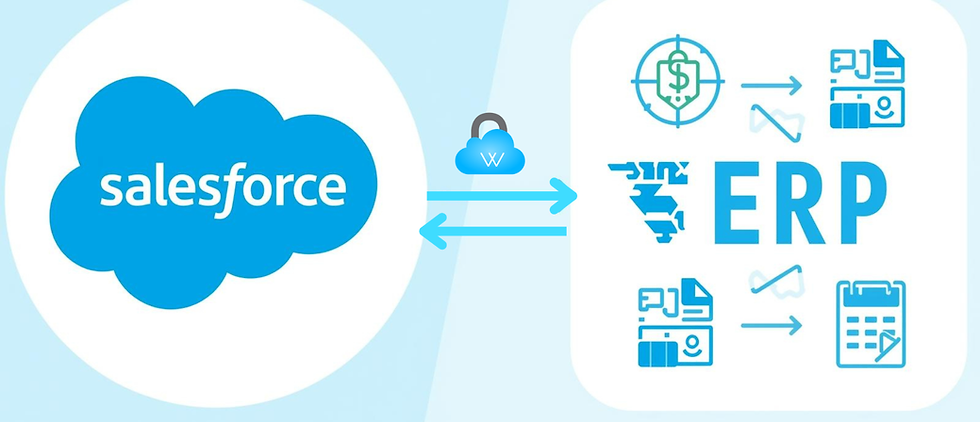Salesforce & Google Partnership
- Roshan Dash
- Feb 17, 2020
- 3 min read
Google and Salesforce have partnered together to build new integration between salesforce cloud and google platform and products.
As part of the agreement, Salesforce has named Google Cloud as a preferred public cloud provider to support the company’s rapidly growing global customer base. Salesforce plans to use Google Cloud Platform for its core services as part of the company’s international infrastructure expansion.
The companies will offer new integrations that connect Salesforce, the world’s #1 CRM platform, with G Suite, Google's transformative productivity and team collaboration services, enabling customers to surface powerful customer intelligence seamlessly between Salesforce Lightning and Quip and Gmail, Hangouts Meet, Google Calendar, Drive, Docs and Sheets. To enable Salesforce’s more than 150,000 customers to quickly and easily realize the productivity gains made possible by bringing together these solutions, eligible Salesforce customers that are new to Google's growing productivity and collaboration services will be able to use G Suite at no charge for up to one year (restrictions apply, see here).
The companies will also deeply integrate Salesforce with Google Analytics, seamlessly connecting sales, marketing and advertising data across Salesforce Sales Cloud, Salesforce Marketing Cloud and Google Analytics 360, for the first time. Customers will be able to gain new consumer insights so they can deliver the most relevant experience at the right moment— whether that’s talking to a salesperson, opening an email, visiting a website, clicking an ad, or searching on Google.
Salesforce & Google Analytics 360
Google and Salesforce are announcing a strategic partnership to deliver four new, turnkey integrations between Google Analytics 360, Salesforce Sales Cloud and Salesforce Marketing Cloud.
Sales data from Sales Cloud will be available in Analytics 360 for use in attribution, bid optimization and audience creation.
Data from Analytics 360 will be visible in the Marketing Cloud reporting UI for a more complete understanding of campaign performance.
Audiences created in Analytics 360 will be available in Marketing Cloud for activation via direct marketing channels, including email and SMS.
Customer interactions from Marketing Cloud will be available in Analytics 360 for use in creating audience lists.
By integrating your customer data, you can see a customer’s path from awareness all the way through to conversion and retention. And with connections to Google’s ad platforms and Salesforce’s marketing platform, you can quickly take action, engaging them at the right moment. You'll see these new integrations begin to arrive in the first half of 2018.
With the integration allowing data from Analytics 360 to be visible in Marketing Cloud, you’ll gain a more complete understanding of how your marketing campaigns perform. For example, if you send an email campaign to frequent shoppers to promote your fall fashion line, you’ll be able to see right in Marketing Cloud information such as how many pages people visited when they came to your site, the number of times people clicked on product details to learn more, and how many people added items to their shopping cart and converted.
With the Analytics 360 connection to Marketing Cloud, you’ll be able to use customer insights to take action in marketing channels beyond Google’s ad platforms, such as email, SMS or push notification. For example, you can create an audience in Analytics 360 of customers who bought a TV on your site and came back later to browse for home theatre accessories and use that list in Salesforce to promote new speakers with a timely and relevant email.




Comments